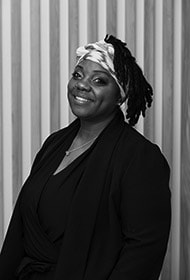Are you and your partner losing sleep over snoring? Did you know that the professionals at McLean DDS could help? Our dentists are experienced in diagnosing sleep disorders. We treat simple snoring effectively with a device that you wear at night. If we suspect you have sleep apnea, we recommend that you consult a sleep specialist for a thorough exam and sleep study. When you contact us today, you’ll start sleeping better tonight — and a good night’s sleep leads to a better smile the next day!

Sleep Disorders
Orofacial (mouth, jaw and face) pain not attributable to a dental cause may indicate a sleep-related breathing disorder, such as snoring or sleep apnea. Your dentist will ask about your sleeping habits; if you snore, your dentist can help treat your problem. If Dr. Devasia suspects that your problem might be more serious than simple snoring, you will be referred to a sleep specialist for comprehensive testing and diagnosis.
Can Snoring Be Treated?
What is snoring? When air is obstructed and can’t move freely through your airway during sleep, vibrations at the back of the throat cause a snorting sound. Snoring disrupts sleep for you and your partner, prevents you from getting a good night’s sleep, and may cause a more serious condition called sleep apnea (discussed below).
A custom-made and custom-fitted dental appliance can relieve or even eliminate snoring. The appliance, resembling an athletic mouthguard, works by repositioning the jaw, muscles, tissue and tongue. The removable appliance is worn at night to help keep your airway open; breathing becomes less labored, and you sleep better and more quietly. The oral appliance is comfortable, easy to wear and care for, portable and convenient for travel.
What is the Difference Between Snoring and Sleep Apnea?
Undiagnosed, untreated snoring can create a tendency for the airway to collapse, which may lead to sleep apnea. Unlike mild snoring, the tissues and muscles in the back of the throat collapse the airway, causing an individual with sleep apnea to stop breathing many times during sleep, sometimes hundreds of times during the night and for up to a minute or longer.
While the disorders are related, not all snorers develop sleep apnea, and not all sleep apnea patients snore. It may be helpful to ask your partner about any noises you make while sleeping. If he or she hears loud snoring interspersed with silences, snorts and/or choking sounds, then you should be evaluated for sleep apnea.
What Is Sleep Apnea?
Sleep apnea, a serious and potentially life-threatening disorder, is characterized by episodes in which a person stops breathing during sleep. After every episode, the brain wakes up to resume breathing. Obviously, the sleep cycle is greatly disrupted, and the sleep apnea sufferer experiences poor-quality, fragmented sleep. The lack of oxygen during sleep can lead to impaired daytime functioning, high blood pressure, and increased risk of heart attack and stroke. Only a sleep clinic can definitively diagnose sleep apnea.
Symptoms of sleep apnea are:
- Excessive snoring, choking or gasping during sleep
- Insomnia
- Morning headaches
- Dry mouth or sore throat upon awakening
- Excessive daytime sleepiness
- Irritability and impaired mental or emotional functioning
Are You at Risk for Sleep Apnea?
Sleep apnea is more common in men, but it may be under diagnosed in women. While a genetic link has not been proven, the disorder appears to run in families. Common risk factors include:
- Physical abnormality in the nose, throat or other parts of the upper airway
- Obesity
- High blood pressure
- Smoking
- Use of alcohol, sedatives or sleep medications
How Is Sleep Apnea Treated?
In obstructive sleep apnea (OSA), the most common form, the muscles in the walls of your throat relax to the point where the airway collapses and prevents air from flowing into your nose and mouth, but efforts to breathe continue. Treatment is based on the degree of severity as determined from your medical history, physical exam and the results of your sleep study, or polysomnography.
Treatments for mild apnea include a change in sleeping position, losing weight, quitting smoking and wearing the same type of dental appliance used to treat simple snoring. The FDA has approved more than 100 different oral appliances that hold the lower jaw forward to keep the airway open, preventing the tongue and muscles from collapsing and blocking the airway during sleep. The appliances are custom-made and fitted, removable and easy to wear.
Patients diagnosed with severe sleep apnea are generally prescribed a continuous positive airway pressure (CPAP) system. Utilized during sleep, the CPAP system delivers air through a mask covering the nose while applying constant pressure to keep the airway open. CPAP prevents snoring and episodes of apnea.
Our Recommendation
Our dentists may conduct an initial consultation after asking about your sleep habits. If you snore or have other symptoms of sleep apnea, we will recommend that you see your physician or a sleep specialist for an exam and a definitive diagnosis. The physician or specialist may recommend that you undergo an overnight sleep study, or polysomnography. This test records your breathing and measures heart rate, among other things. A confirmed diagnosis is required before we begin treatment. After your sleep study, we consult with your physician and begin treatment using a dental appliance, if recommended. If the study determines that you have sleep apnea, your sleep specialist will likely recommend a CPAP system.


 703-734-2750
703-734-2750






